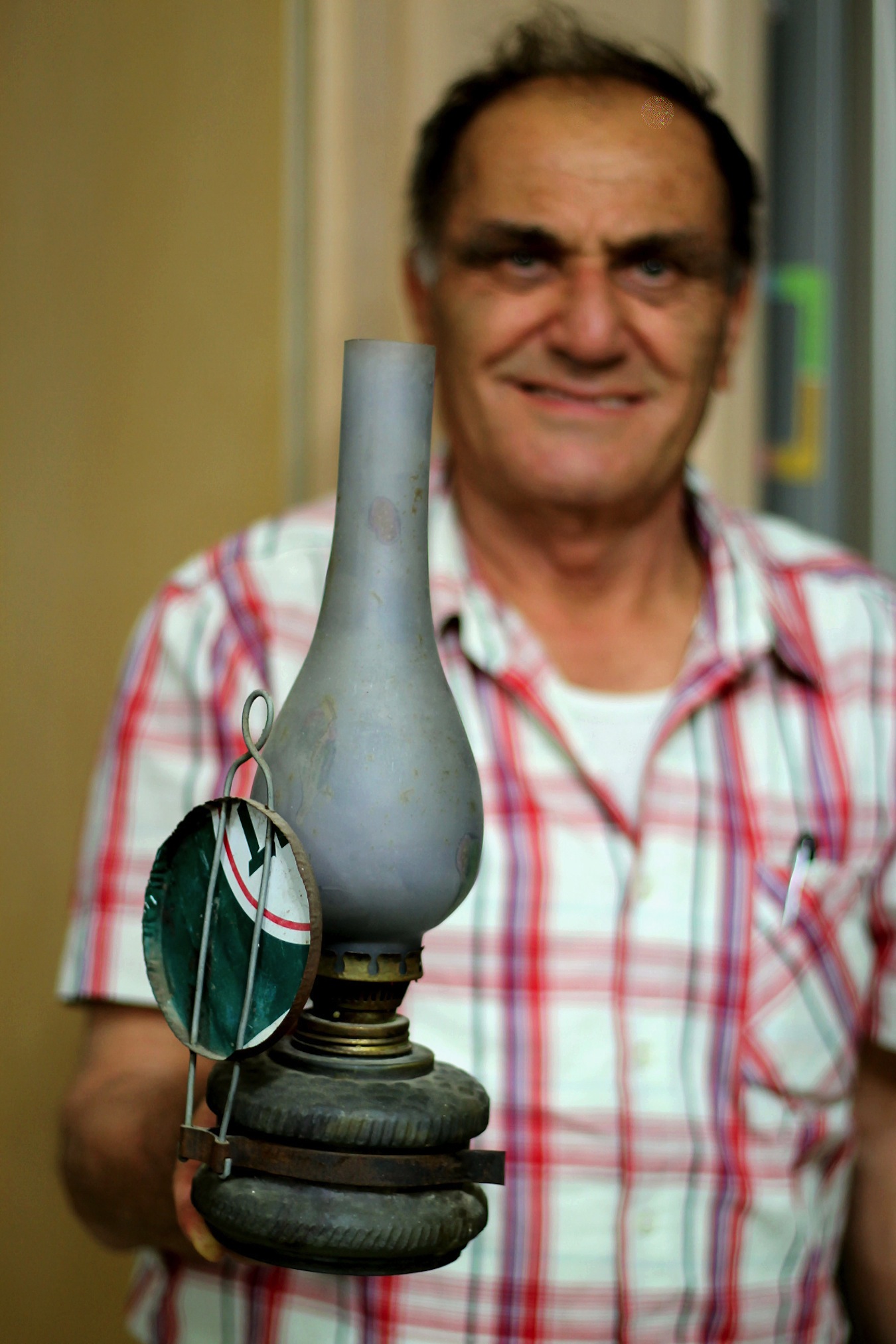
Laura van Rij (LR): What is your connection to Lifta?
David Kirma (DK): I came to Lifta when I was a child, from Kurdistan. This was in July 1951. We moved into a house near the spring, you could see the spring from the window. The house is still there today. Lifta looks the same as many villages in Kurdistan, so the people felt at home. They also came from the mountains, it´s not like they came from New York. Before we came to Lifta there were Yemenites living there, Ben Gurion brought them there. It was very hard for them so they sold the houses to people from Kurdistan, or they just left.
LR: Do you still have the contract, from when your parents bought the house?
DK: (laughing loudly) They didn´t even know what a contract was back then, they didn´t even know how to write down their name correctly. When the government registered them they didn´t understand Hebrew, so they would ask for someone´s last name and they would put the name from their hometown there. Until today there are families with a lot of different last names. It is because the people were badly educated. They didn´t know how to read, my father used to tell them stories from the Bible.
LR: They opened a school in Lifta in the fifties, right?
DK: The government opened a school in Lifta in one of the houses, with one room for the small kids and one for the others. I was one of the children that was lucky enough to learn in this school, it was closed very soon because there were some problems. There was also a doctor, people could go there when they were sick or had to give birth. There were a lot of children in Lifta, those people made more children than the Arabs. When we lived there, around 3000 people called it home, in every room one family. Later I became a teacher in the school of Lifta, until the people left in 1967. They didn´t want to live like that anymore. The government gave money to buy a house elsewhere, they didn´t want to pay for the renovation of the village.
LR: How was it to live in Lifta in those first years, in the fifties?
DK: When we came to Lifta they made a central pipe where people could get water from. Our house was next to the spring, we got the water there. When we arrived it looked like it looks today, not much changed. Only the roofs were not broken.We had a primus; we cooked on it and heated the house with it. When we were young, this was the only way to have a shower, to put a big pan with water on the primus, heat it, and wash yourself. Only in 1958 we got electricity. We never had electricity, just candles and lamps with oil, also not in Kurdistan. For us it was like magic, the light makes the change.
LR: So it was a hard life in Lifta. Did a lot of people regret coming to Israel?
DK: There were five synagogues in Lifta, the people were religious. They came to Israel because they are Jewish; they kissed the ground when they arrived. I told you about the difficulties of living in Lifta, but the most important thing is that the people loved one another. This made Lifta a happy place. Every Shabbat they danced outside, near the spring. They played music and sang with the whole community. It happened around the spring mostly because there were no restaurants, no movie theatres, just the Kurdish dances. Until now I speak about this with my friends from Lifta. After a hard day of working my parents and their friends came to our house and they would tell stories. They told stories about Kurdistan, sang songs from Kurdistan. At midnight they would go to bed, because they had to get up every morning very early. They were happy to come to Israel, the difficulties were less important because sometimes, when you really believe in something, other things become easier to overcome. We had to suffer for God to get the country.
LR: How did you meet your wife, Tzipi?
DK: I got married to Tzipi in Lifta. We met in the village, we went to the same school and our parents were from the same village in Kurdistan. Most of the people married someone from the same village, because the families knew each other well. Sometimes we go back to the house we lived in, when visiting Yoni (Yochanan) there, but not every time.
LR: How would you like to see Lifta in the future?
DK: I want to keep the houses. If they destroy it maybe in 1000 years no one will know the story of the people of Lifta. All the history of the place is important, also the history of the Arabs. Also it is important to understand the Bible. We read the Bible but we need to have places where we can see how life was in biblical times. It should not be destroyed, no new houses, it should be like a museum where you can see the history with your own eyes.

